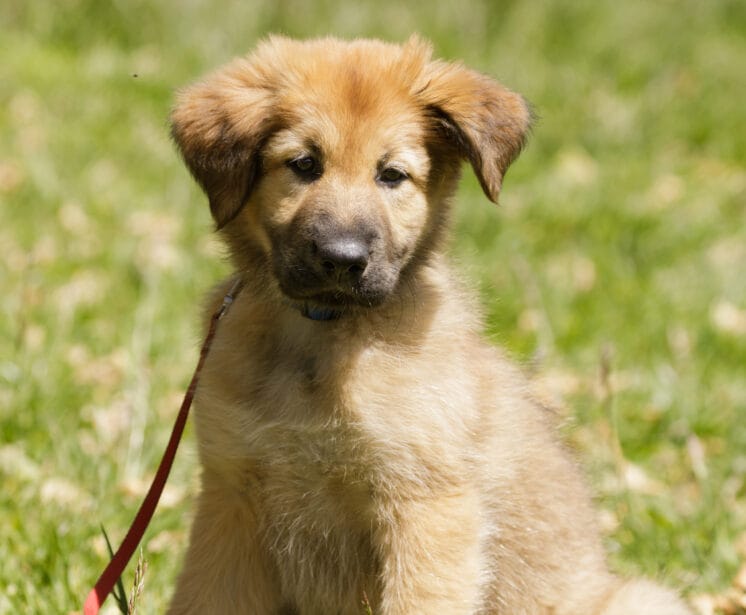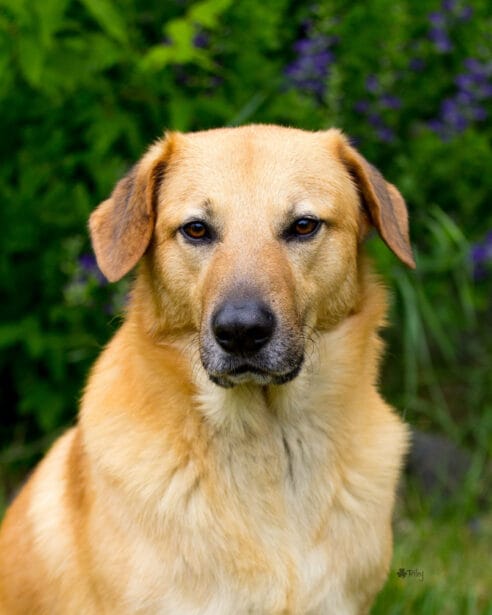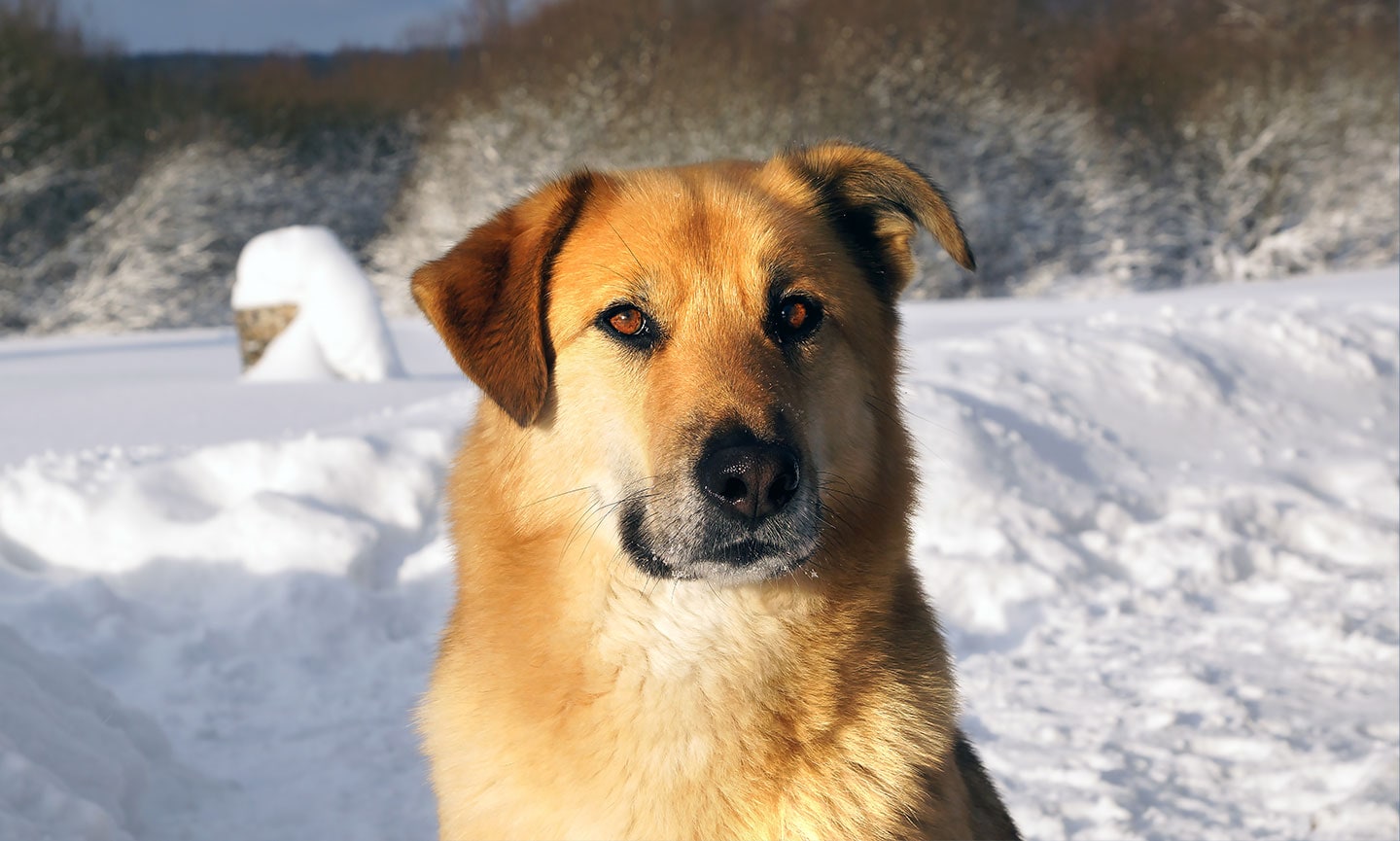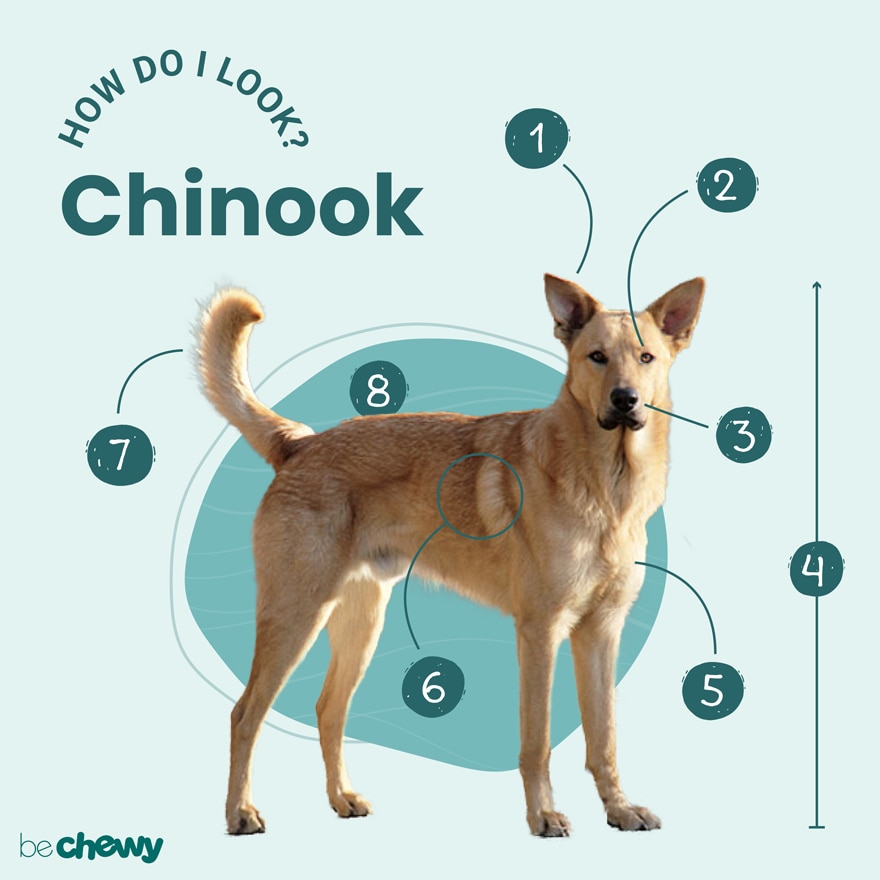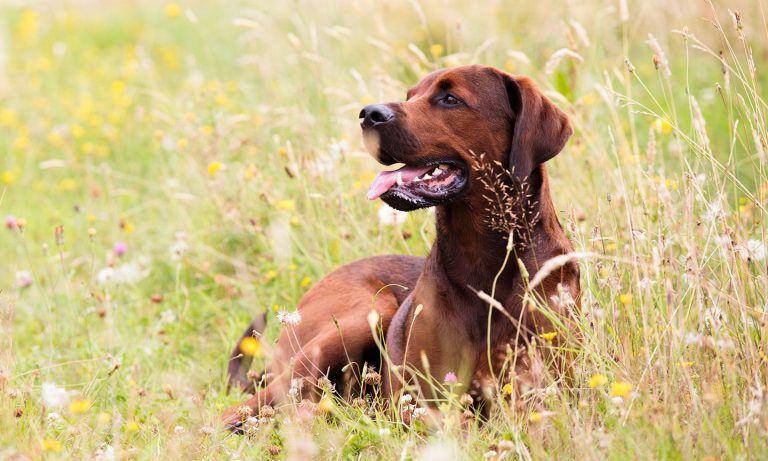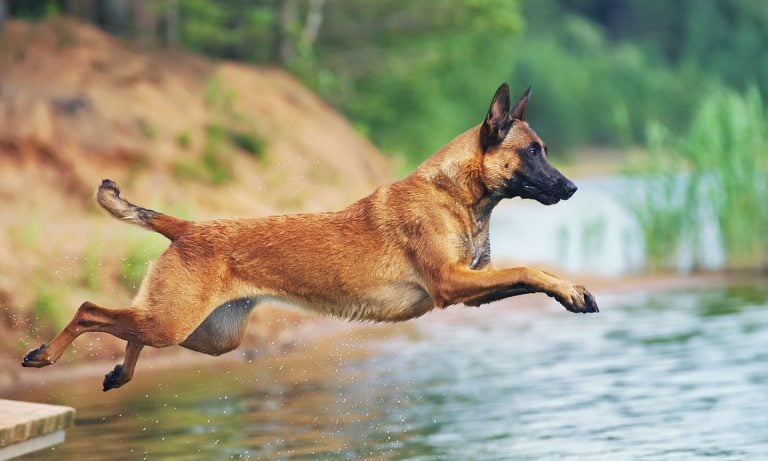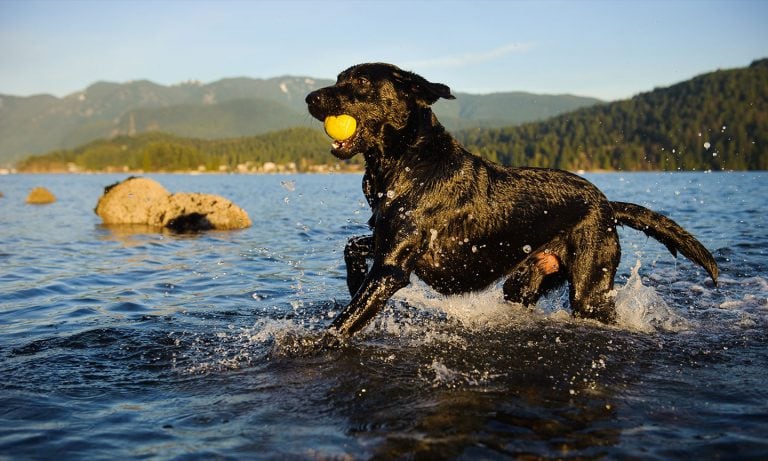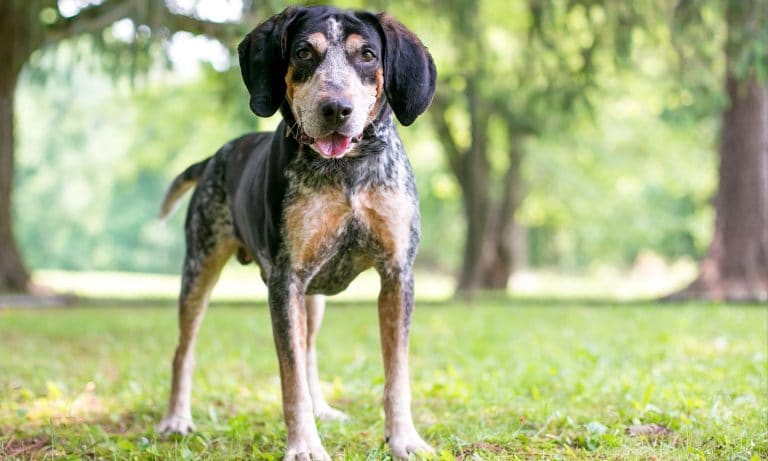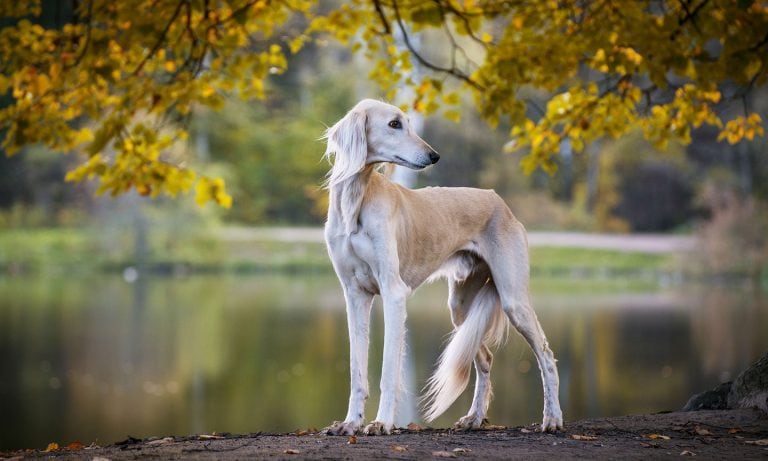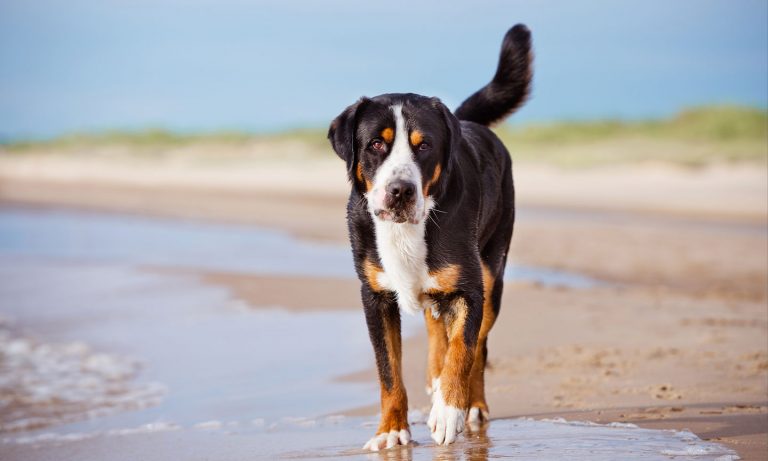The Chinook is a high-energy dog who loves their people with as much gusto as they love running and playing. Much like the Husky, which this breed is descended from, the Chinook believes running is a team sport, so lace up those sneakers! In fact, Chinooks approach all things in life as a team effort: playtime, nap time—even running errands. They’d rather be with you than without you. And if you do leave them home alone, expect them to be waiting for you at the door. You’ll know you’ve been gone too long when your pup gives you the business as you walk back in. So, say goodbye to quiet nights full of contemplation. But when your pup looks at you with those adoring eyes, you’ll wonder why you ever valued time alone before.
Breed Snapshot
Temperament:
Affectionate CompanionEnergeticSocial ButterflyCoat Color:
FawnGray RedPalominoRed GoldSilver FawnTawny
Best For
Are you ready to add a Chinook to your pack? These are sled dogs descended from Huskies, known for their strength and gentle nature. They thrive in active households, needing ample exercise and mental stimulation.
Chinook Temperament
The temperament of a Chinook is friendly, patient, highly intelligent and outgoing. As social butterflies, they thrive in busy households and form strong attachments to their pet parents. Your dog will need plenty of attention and time with you, so it’s best if someone will be home with the dog for most of the day.
Chinooks are not known for biting beyond the puppy stage. Properly training and socializing your Chinook puppy can reinforce that biting and nipping aren’t acceptable behaviors in a well-mannered family member. (More on that below in the Training section.)
Their amiable demeanor makes them great family dogs, although because these dogs are large, it’s important to supervise them around small children. (Your pup may knock a tiny tot over accidentally!) That friendliness also means they don’t make the best guard dogs. You may actually find they are the best “welcome mat”—they will greet visitors enthusiastically at your door.
How to Care for a Chinook
The Chinook breed is a high-energy dog with moderate care needs. Because they are so active, they need a fair amount of training and exercise to deal with their deep energy reserves. Even though they don’t have long fur like a Husky, they do shed a bit and require a modest amount of grooming. But all your time spent with your pup is quality time strengthening your bond.
Chinook Health
Chinooks have a lifespan of 12 to 15 years and are relatively healthy dogs. However, being aware of their common health issues can help you give your pup the healthiest and longest life possible.
- Hip Dysplasia: Hip dysplasia is a skeletal condition that causes the ball and socket of your dog’s hip joint to rub together; it can be very painful and worsen with time. Dogs with hip dysplasia can have difficulty jumping and running, may limp or hop like a rabbit, and may develop arthritis, making it hard to participate in activities they once loved such as fetch and frisbee. Hip dysplasia occurs to different degrees, and there are many ways to manage it, including physical therapy, anti-inflammatory medications, joint supplements or surgery. Hip dysplasia can be hereditary, but there is no genetic screening test.
- Cataracts: Just like people, dogs can develop a white, cloudy appearance in the eye that leads to vision loss. While cataracts occur more frequently in older dogs, it’s possible for younger dogs to develop them when the cataracts are genetic. Treatment for cataracts depends on how advanced they are, but your vet may prescribe eye drops, monitor the cataracts, or opt for surgery to remove them.
- Chinook Seizures: Some Chinook dogs are prone to a seizure-like condition called paroxysmal dyskinesia. These may look like a “weakened” seizure (less jerking), and the dog is awake and looking around. (Typically, a dog isn’t conscious during a typical grand mal seizure.) Some experts consider this a “movement” disorder rather than a traditional seizure disorder. Treatment will depend on their severity and cause, but a vet may recommend medication to help control it.
- Skin and Coat Issues: Since Chinooks have thick coats, they can experience matting and skin issues if the coat isn’t properly cared for. Mats prevent air from reaching the skin, and issues like sores and infections can result. Regular, thorough brushing can help to promote skin and coat health. Inspecting your dog’s skin daily can also help you to spot issues early on, so you can promptly treat them before they get worse. Your vet may prescribe topical medications or shampoos to help.
Chinook History
The Chinook’s history begins with the sled dogs of Alaska. Arthur Treadwell Walden, an adventurer and sled dog driver, traveled to Alaska in 1896. Drawn by the Gold Rush, Walden traveled across the Klondike and became a talented musher (someone who drives a sled). He was inspired by the sled dogs and decided to develop his own sled dog breed.
Walden returned to his hometown of Wonalancet, New Hampshire, in 1902 and set about making his dream a reality. He carefully chose the dogs he bred together. He selected a Husky lead dog named Polaris, as well as a farm dog who was a mastiff-type breed. In 1917, a litter of three puppies was born, and the Chinook breed began.
The puppies were friendly toward humans, but they also had a natural sledding talent that quickly got them plenty of attention. Others who had sled dogs learned about Walden’s dogs, and his breeding program became successful.
Walden named one of those three puppies “Chinook” after one of the sled dogs he worked with while in Alaska. Chinook was a tawny brown color and became a lead dog, sledding in New England and even traveled to Antarctica.
Walden passed away in 1947, and the Chinook breed (named for Walden’s puppy) almost didn’t survive without him. In 1965, the Guinness World Records recognized the breed as the rarest dog breed in the world—only 125 Chinook dogs existed at the time.
Thankfully, other dog breeders recognized the importance of the breed and worked to increase their numbers. The Chinook became the official state dog of New Hampshire in 2009 and was recognized by the American Kennel Club in 2013.
Are you thinking about adding a Chinook to your family? While the breed is rare, you can find a list of reputable breeders on the American Kennel Club’s website. The price for a puppy can range from $1,000 to $2,000, depending on the breeder. But for that price, you’re getting a puppy who’s been screened for health and temperament issues and may come with pedigree papers. To adopt a Chinook, contact the Chinook Club of America. Because these dogs are so rare, you won’t find them in local rescues, but you may be able to find one through the parent club or one of their endorsed breeders.
FAQs
Do Chinooks shed?
Yes, Chinooks shed but not particularly heavily. They have a double coat, and it can be maintained with weekly brushing. Their shedding increases twice a year during the change of seasons (fall and spring), but daily brushing during these times can help minimize the amount of fur that ends up in your home and your car.
Where are Chinook dogs from?
Chinook dogs come from New Hampshire. Their origins started with an explorer named Arthur Treadwell Walden. Walden lived in Wonalancet, New Hampshire, and was inspired by the sled dogs of Alaska. He bred the first Chinook dogs, and those dogs quickly became popular for their talents as sled dogs.
Are Chinooks good family dogs?
Chinooks are good family dogs. They are very friendly and bond strongly to their people. Because these dogs are large, they may do better in homes with older children. (In their exuberance to greet little ones, a Chinook may accidentally knock them over.) With good training and socialization, a Chinook can become a beloved member of your family.
Are Chinook dogs rare?
Yes, Chinook dogs are rare. In 1965, the Guinness Book of World Records recognized the Chinook as the world’s rarest dog breed. Luckily, plenty of breeding enthusiasts dedicated to the Chinook have increased their numbers and work to ensure the breed survives.
Do Chinooks bark a lot?
No, Chinooks aren’t known to bark a lot—unless they’re bored or full of extra energy. Then, they may give you the business because they’re so bored. But if you keep them exercised and entertained (and completely exhausted), they’ll likely remain the quiet pups they’re known to be.

Top Takeaways
Chinooks are highly social dogs who form strong attachments to their pet parents. They’re also very athletic and need a lot of exercise. These pups do well with kids and other animals in the home. They were bred to be sled dogs, so the best types of activities include lots of running and playing. The Chinook is a rare breed, so if you think this is the right type of dog for you, you may need to be patient until a puppy is available.
Expert input provided by veterinarian Dr. Carol Osborne, DVM, a board-certified diplomate of the American Board of Anti-Aging Medicine and founder and director of the Chagrin Falls Veterinary Center, and certified dog trainer Erica Gennaro, owner of Everdog Training and Behavior.
Breed characteristic ratings provided by veterinarian Dr. Sarah J. Wooten, DVM, CVJ, a veterinarian at Sheep Draw Veterinary Hospital in Greeley, Colorado; dog trainer and behavior consultant Irith Bloom, CPDT-KSA, CBCC-KA, CDBC, owner of The Sophisticated Dog, LLC, in Los Angeles; and certified animal behavior consultant Amy Shojai, CABC, in Sherman, Texas.
The health content was medically reviewed by Chewy vets.
Photo credit for “How do I look?” ©2020 by Desert Sol Chinooks. “Are we a match?” by Karen Hinchy of Vanguard Chinooks.

Search for Adoptable Chinooks Near You
Female Names
- Takoda
- Aleu
- Pippin
- Raisin
- Luna
- Kala
- Akina
- Kila
- Chili
- Talkeetna
Male Names
- Tormund
- Taco
- Otis
- Meiko
- Ranger
- Duke
- Ollie
- Cuillin
- Zeus
- Nacho
Share:


